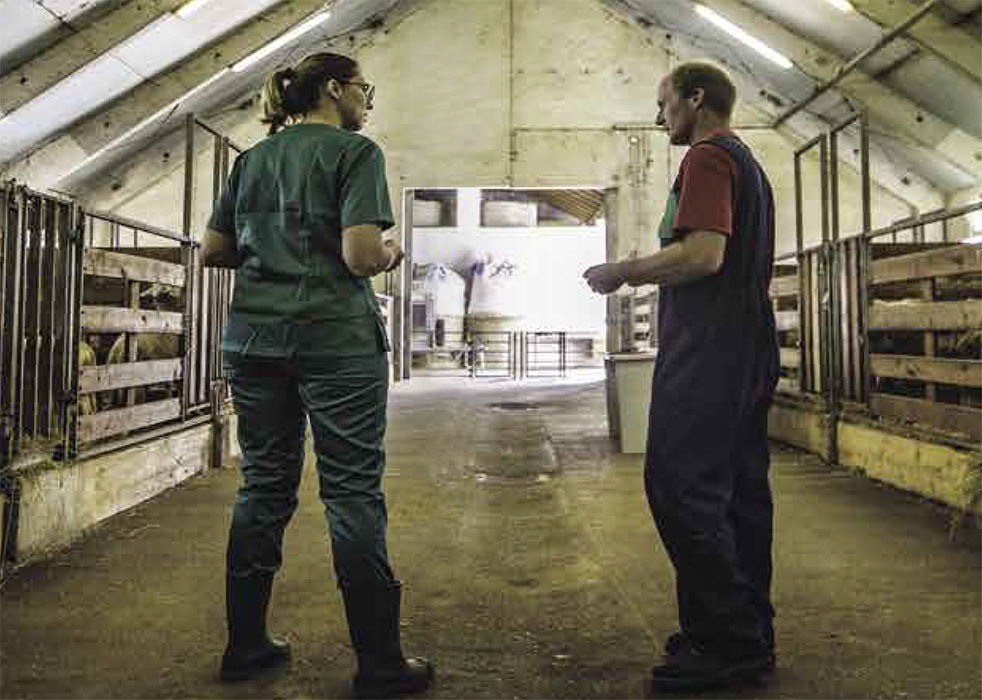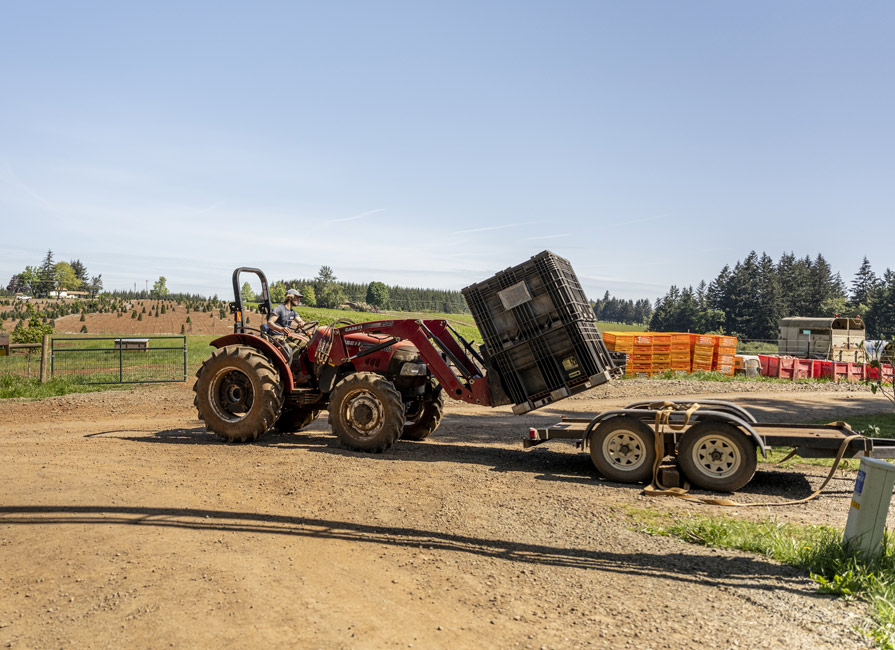One of the key attractions of our Certified Regenerative by AGW program is its practical…

Working With Your Vet
“If someone brings you a dragon, a Martian or Bigfoot, you will be expected to provide care, protect public health and guard against any threat they may present to our food supply. My job is to give you the tools you need to figure it out.” So began my veterinary education …
Veterinarians come with a variety of backgrounds and experiences, but we all share a similar core education. The concept of ‘One Health’ (see box) reminds veterinary students that human, animal and environmental health are intertwined, though medical science and clinical skills are taught using just a few standard species and systems.
A working relationship
Students are introduced to livestock production, nutrition and farm economics. Many programs incorporate courses on animal behavior and a few now offer elective classes addressing ecosystem health or sustainability. Aspiring Doctors of Veterinary Medicine—or DVMs—are asked to consider their role in animal welfare, though they may or may not have much exposure to animal welfare science. And while some groups are working to improve veterinary training in alternative medicine and sustainable agriculture, few programs currently offer continuing education credits for these topics.
So if your vet sometimes looks at you as though you’re a Martian, it may be because your farm doesn’t match that ‘core model’ taught in school. But that need not hinder a great working relationship. Though practices may differ, most vets have a great deal to offer if you’re willing to help your vet understand what you do—and what you need.
How can your vet help?
Regardless of specific experience or practice style, your local vet is well equipped to help with these vital aids to your livestock operation:
- Early detection: Early treatment is the most effective treatment, especially when using alternative/non-pharmaceutical product.
- Your vet can help detect early signs of disease.
- Diagnostics: From vitals to blood tests, fecal exams to environmental swabs, your vet is armed with a suite of tools to gather information that can help you focus your approach. He or she can also help prevent disease from spreading within your herd and determine if an infection is zoonotic (transmissible to humans).
- Procedures: Many vets are happy to teach procedures such as castration, disbudding, or local anesthesia such as a nerve block. Small improvements in your technique could lead to big improvements in welfare and production.
- Treatment plan: Is this alternative treatment safe to try? How will you decide if it’s effective enough? When should you switch to plan B? Even if unfamiliar with some alternative treatments, many vets are willing to help screen for toxicity and residue risks, help determine appropriate dosing, and suggest triggers for switching to a different treatment.
- Prevention: Parasite life cycles haven’t changed since your vet memorized them years ago, but recommendations on deworming and vaccination are regularly updated, and can be tailored to local ecology and farm practices.
- Local knowledge: Does this year’s weather favor certain parasites? Is there a new virus in the neighborhood? Your vet may be the first to know.
- Trade-offs: Even if they don’t have all the answers, farm vets are equipped to help optimize animal health in the context of production needs, market demands, economics, labor, and safety concerns.
A two-way street
Depending on specific interests and experience, your vet may be able to provide useful input for any number of situations. For example, they might offer nutrition advice to meet demand for ‘soy-free’ eggs or assist in planning an on-farm trial to see if a homeopathic or herbal remedy helps resolve a persistent health issue on your farm. Fruitful collaboration is most likely to emerge if you follow these guidelines:
- Help your veterinarian understand what you do and what you want. Use the list above (‘How can we help?’) as a starting point and ask where they think they can contribute significantly to animal health on your farm or ranch.
- Your veterinarian’s most valuable asset is their expertise. AGW recommends you have regular preventative care visits from your vet (i.e. do not just call when an animal falls sick). Some vets will offer preferential fees if you arrange routine consultations and services. If you do not utilize standard services, such as herd health checks, you may need to negotiate consultation fees.
- Appropriate handling facilities will allow your vet to safely examine or treat your animals. Practicing good handling with your livestock will minimize the ‘fight or flight’ stress response and protects care givers from possible injury.
- Your vet may wish to use a ‘One Health’ approach, collaborating with other providers to meet your needs. Work with them to facilitate teamwork and ensure comprehensive care for your herd or flock.
- When determining a course of action, make sure your goals, your values and sound science are all thoroughly considered.
Collaboration
Whole-farm health is a community endeavor. Your veterinarian can provide invaluable assistance to protect animal health and product safety and may be able to help address other complex problems such as environmental or human health impacts. For specialized treatments, a collaborative approach may be best. With communication and perhaps some negotiation, your veterinarian can play a significant role in fulfilling your goals for a robust, resilient agro-ecosystem that safeguards animal health and welfare.
Jennifer L. Burton DVM is a veterinarian and educator with a special interest in the intersection of food animal medicine and public health


